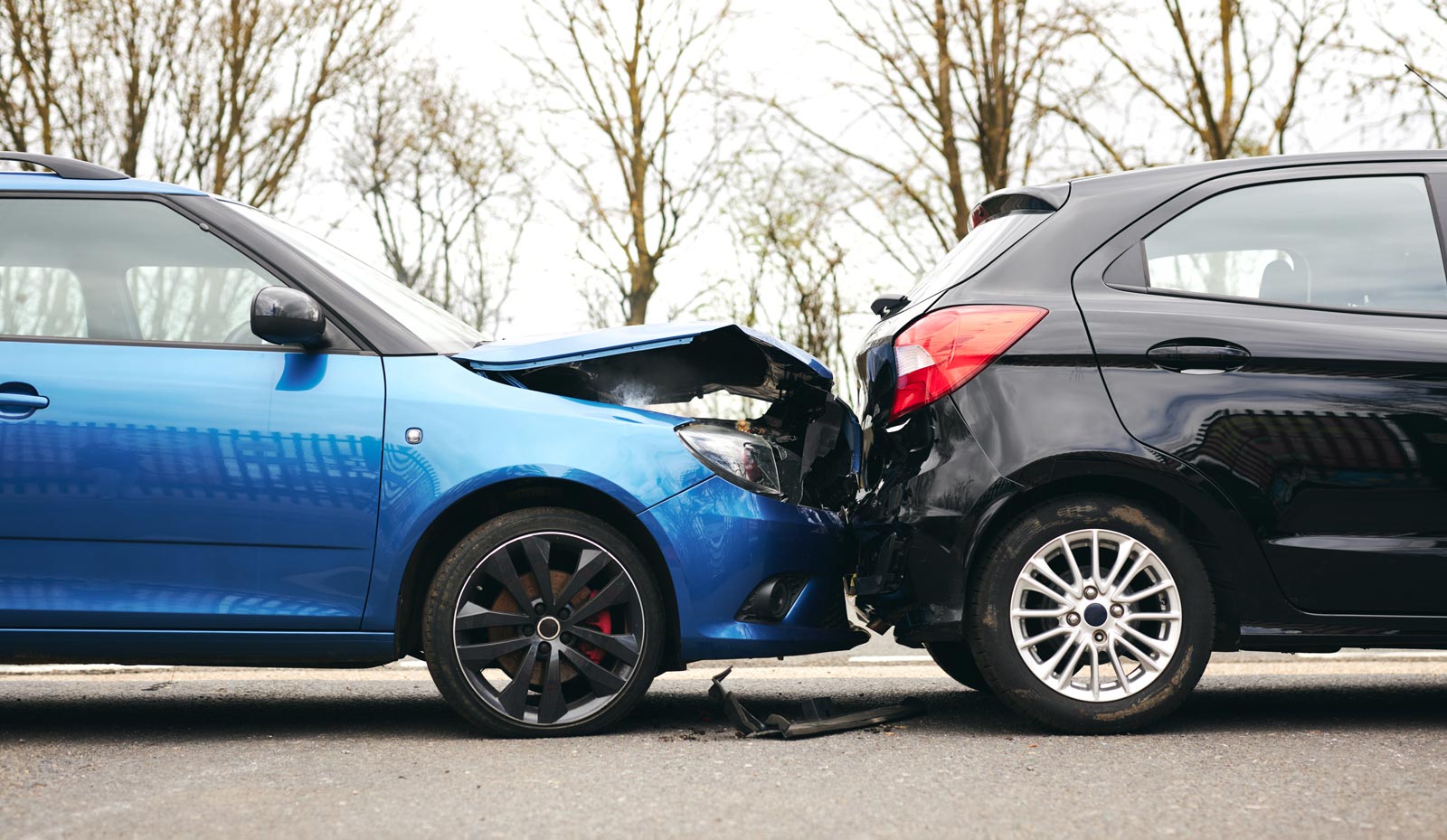Texas isn’t just the second most populous state in the U.S. It’s also one of our nation’s biggest destinations for out-of-state travelers. According to Travel Texas, the state hosts more than 70 million visitors per year.
While we certainly wish that everyone who visits our state enjoys a stress-free trip, the reality is that more than a handful of those 70 million will be involved in car accidents. Some of those will result in serious injuries and legal action. And that can put out-of-state drivers in a tough spot.
If you’re an out-of-state driver, the process can be frustrating and confusing—especially if you try to handle it on your own. But a little knowledge and a good Texas car accident lawyer can significantly simplify the process for you.
What Is Jurisdiction?
You’ve probably heard the term “jurisdiction” on the news or your favorite legal drama, but what does it mean? When you file a lawsuit, you have to make sure that the court has the power to hear your case. Lawyers refer to this power to hear cases and issue decisions as “jurisdiction.”
If both you and the at-fault driver are from the same state, it’s not hard to determine jurisdiction—you’ll file your lawsuit in that state’s courts. But when the parties are from different states, things can get complicated.
Generally speaking, if you’re involved in a car crash and want to pursue a lawsuit, you can file in either the state where the defendant lives, or the state where the accident happened. If a car accident occurred in Texas, then Texas law is going to apply, and a Texas court will have jurisdiction. That is true even if the injured party isn’t a Texas resident and has a car insurance policy issued in another state.
A Brief Overview of Texas Personal Injury Law
If you were injured by a Texas driver, you’ll typically have to file a Texas personal injury claim. That means you’ll need to consult with a lawyer that is licensed to practice in Texas, like the team at Crosley Law.
While every injury claim is different, here are four points to keep in mind if you are going to file a personal injury claim in Texas.
Texas Is a Fault State
Under Texas law, the driver who caused the accident must pay for all your damages, including your medical bills and lost income. If you want to recover compensation for your medical care, lost wages, and other economic and non-economic damages, you’ll first need to file a claim with the other driver’s insurance company. You will also need to prove that the driver was responsible for the car accident.
If you live in a no-fault state like Florida or Michigan, and you are driving your own personal vehicle (insured in your home state) when you’re involved in an out-of-state accident in Texas, your own no-fault benefits may still cover you. However, you will likely still need to make a claim against the Texas driver to recover any non-economic damages (such as pain and suffering), or if your own insurance benefits aren’t enough to cover your economic losses.
Further, if your own insurance company pays your no-fault benefits up front, and you later win your car accident case in Texas, you may have to pay back your no-fault insurance company out of your settlement or trial verdict.
If You Were Partially at Fault, the Insurance Company Could Deny Your Claim or Reduce Your Damages
Texas applies a doctrine of modified comparative negligence with a 51% bar in injury claims, so the insurance company can reduce your compensation by the percent of blame you hold for the crash.
What does that mean?
- First, to be eligible to receive any compensation, you cannot be more than 50% at fault. If you are determined to share at least 51% of the blame, your claim will be denied entirely.
- Second, if you are more than 0% but no more than 50% responsible, your damages will be reduced by your degree of fault. In other words, if a court believes your actions made you 10% responsible for the car accident, you can only obtain 90% of your claimed damages.
Texas Has a Two-Year Statute of Limitations for Personal Injury Lawsuits
One crucial piece of information to know if you get in a car wreck is the state’s personal injury statute of limitations. If you file a lawsuit after the statute of limitations expires, you may lose your right to compensation.
In Texas, there is a two-year statute of limitations for personal injury lawsuits, meaning you have two years after a car crash to file your injury claim.
While that may seem like a lot of time, it’s best to get started with your case as soon as possible after the accident. The earlier you contact an attorney, the less likely crucial evidence will be lost or overlooked, and the more time you’ll have to build a robust legal case.
All Texas Car Owners Must Carry a Minimum Amount of Liability Insurance
Texas’ car owners are legally required to carry a minimum amount of liability coverage on their vehicles: at least $30,000 per person for bodily injuries, with a maximum of $60,000 per crash, and $25,000 for property damage. Other types of insurance, such as collision, uninsured/underinsured motorist (UM/UIM), and personal injury protection (PIP), are available but not required under state law.
If you get into an accident caused by a Texas resident and they only have Texas’ mandatory policy limits, a negligent driver may not have enough coverage to pay for all your damages, particularly if you suffer serious injuries.
If your personal auto insurance policy from your home state includes UM/UIM and/or PIP coverage, those benefits will likely be able to step in and cover you if the Texas driver is uninsured or underinsured. However, you should still speak to a personal injury attorney about your options for recovering any remaining damages.
Your Post-Accident Itinerary: What to Do After the Crash
Here are some general tips for what to do immediately following your accident.
1. Report the Accident to the Police
Unless the accident was minor enough to cause almost no damage, Texas law requires you to notify the police so that they can fill out a crash report. If possible, it is a good idea to obtain a copy of that report for future use.
Even if you feel like the damage was minor and you suffered no serious injuries, still get an accident report. Sometimes injuries that seem minor at first turn out to be much more severe.
2. Collect the Driver’s Information
The next thing you need to do after an accident is to collect all the relevant information from the other driver. This information includes:
- Personal: Name, address, phone, and email
- License: Driver’s license and license plate number
- Insurance: Insurance company and policy number
3. Assemble Witness and Damage Evidence
Ask any witnesses for their name and contact information so that their testimony can be used as evidence later, if needed. Additionally, take pictures of the crash scene, your injuries, and the damage to the vehicles involved.
4. Avoid Admitting Any Fault
Do not admit fault to the other driver, police officers on the scene, or witnesses. Even a simple statement such as, “I’m so sorry, I didn’t see you,” could be used against you later when determining what percent of the crash was your fault.
5. Seek Medical Care
You should always follow up with a doctor as soon as possible after a car accident if you’re experiencing any new symptoms, however minor they might seem.
While this might seem like an added inconvenience—especially if you’re on vacation—you are far better safe than sorry. As noted above, sometimes injuries are more severe than they first appear. Seeking immediate treatment helps ensure you get the care you need. You will also establish medical records linking your symptoms to the crash, making it harder for the insurance company to argue that you are exaggerating your symptoms or that they were pre-existing.
6. Contact a Texas Personal Injury Attorney
Insurance companies are not on your side. They will use any possible means to avoid having to pay your insurance claim. Before you call or speak to any insurance agent—whether they represent you or the other driver—contact a Texas personal injury attorney.
Do I Really Need to Hire a Texas Car Accident Attorney if My Accident Happened There?
Although you don’t have to hire an attorney, we strongly recommend that you work with an experienced car accident attorney who is local to the area where the crash took place. If you’re an out-of-state visitor, most likely Texas will be your only option (unless the at-fault driver was also a resident of a different state). So, at minimum, you’d need to hire an attorney who is licensed to practice here.
Hiring a local Texas attorney makes sense for other reasons, too. Car accident cases are often complicated and time-consuming. Your attorney may need to subpoena records and evidence, depose the defendant, follow up with eyewitnesses, and more. It is also to your benefit to contact a lawyer sooner rather than later, as critical evidence may be lost forever if your lawyer isn’t able to protect and examine it soon after the crash. All these things are much easier to handle if the person doing the work is familiar with, and local to, the area.
Furthermore, an experienced attorney based where the crash took place should be familiar with local laws, local courts and judges, and potentially even local insurance company attorneys who may be on the defense team.
For all these reasons, working with a Texas attorney can help the process go much more smoothly, and give you a better chance at a great outcome than trying to handle things on your own.
Our team has handled many claims for out-of-state crash victims. For example, John was on a business trip in San Antonio. As he was walking through an intersection, a delivery truck turned the corner and hit him. Using the police report, dashcam footage, and the truck driver’s own statements, we were able to negotiate a $178,000 settlement—and John didn’t have to deal with the logistics of an out-of-state trial.
Crosley Law: San Antonio’s Personal Injury Team
A serious crash will bring your vacation plans to an abrupt stop. Although your trip to San Antonio may be ruined, speaking with a local personal injury attorney can help ensure the accident doesn’t ruin the rest of your life as well.
At Crosley Law, we focus on Texas personal injury lawsuits and use our extensive knowledge of local cases and Texas law to maximize our clients’ accident compensation.
We know that pursuing a lengthy personal injury lawsuit can be incredibly stressful and frustrating experience for people who live far away from where their case has been filed, and we work hard to make the process as frictionless as possible. No matter where you reside or spend most of your time, we are happy to work around your schedule, answer any questions you have, and keep you updated about your case. We have extensive experience representing Texas visitors in personal injury claims and are happy to accept referrals from attorneys in other states.
We also accept referrals from out-of-state attorneys who need in-state counsel.
If you’ve been in a serious accident while visiting San Antonio, contact us today at 210-LAW-3000 | 210-529-3000 or online for your free consultation to getting your life back on track.
The content provided here is for informational purposes only and should not be construed as legal advice on any subject.









